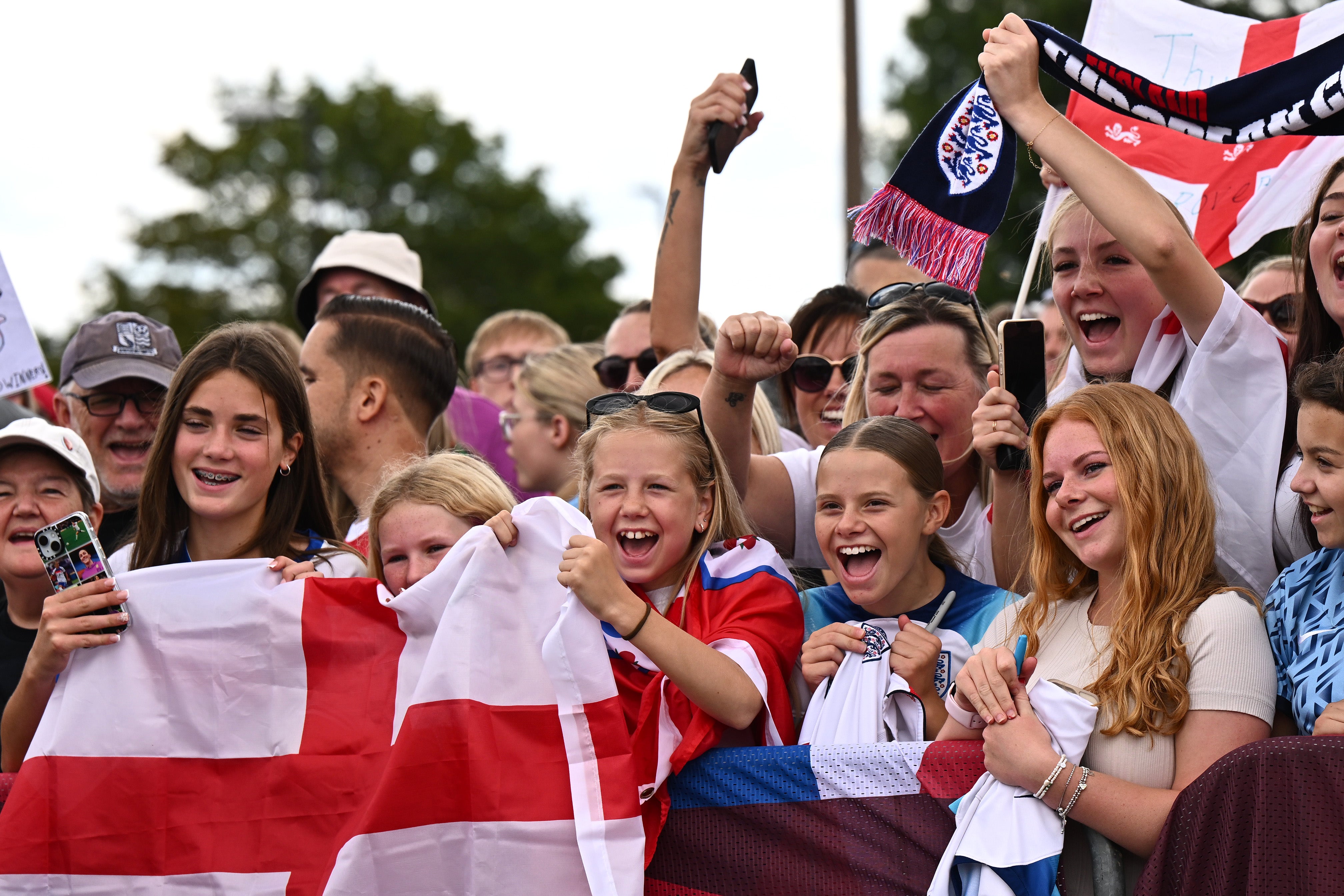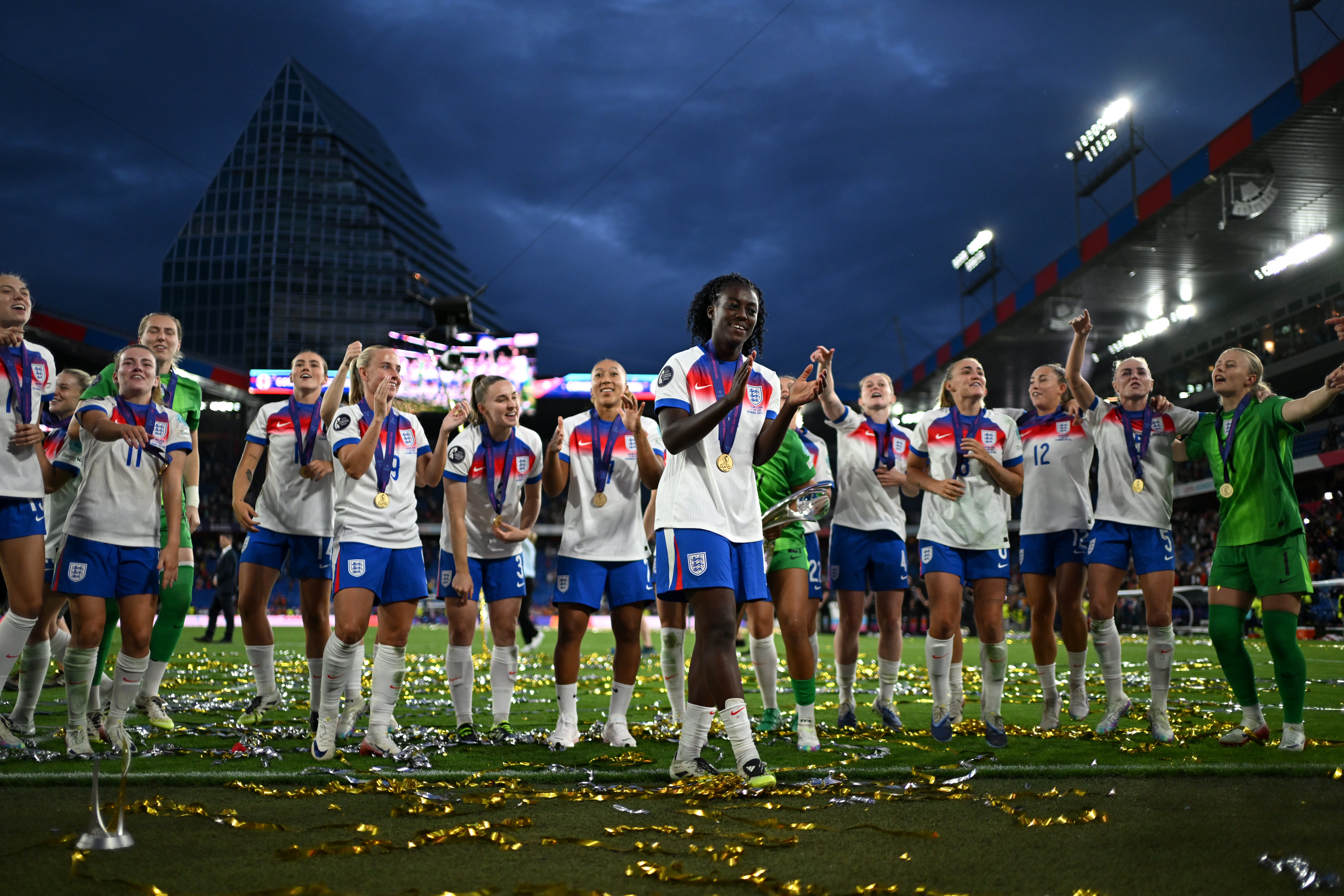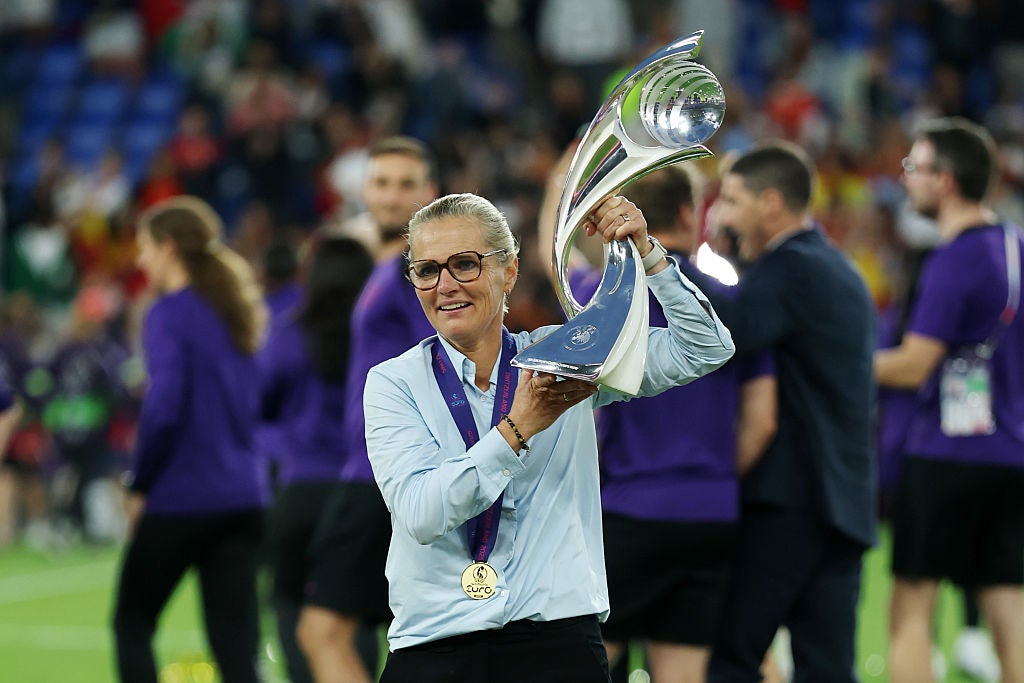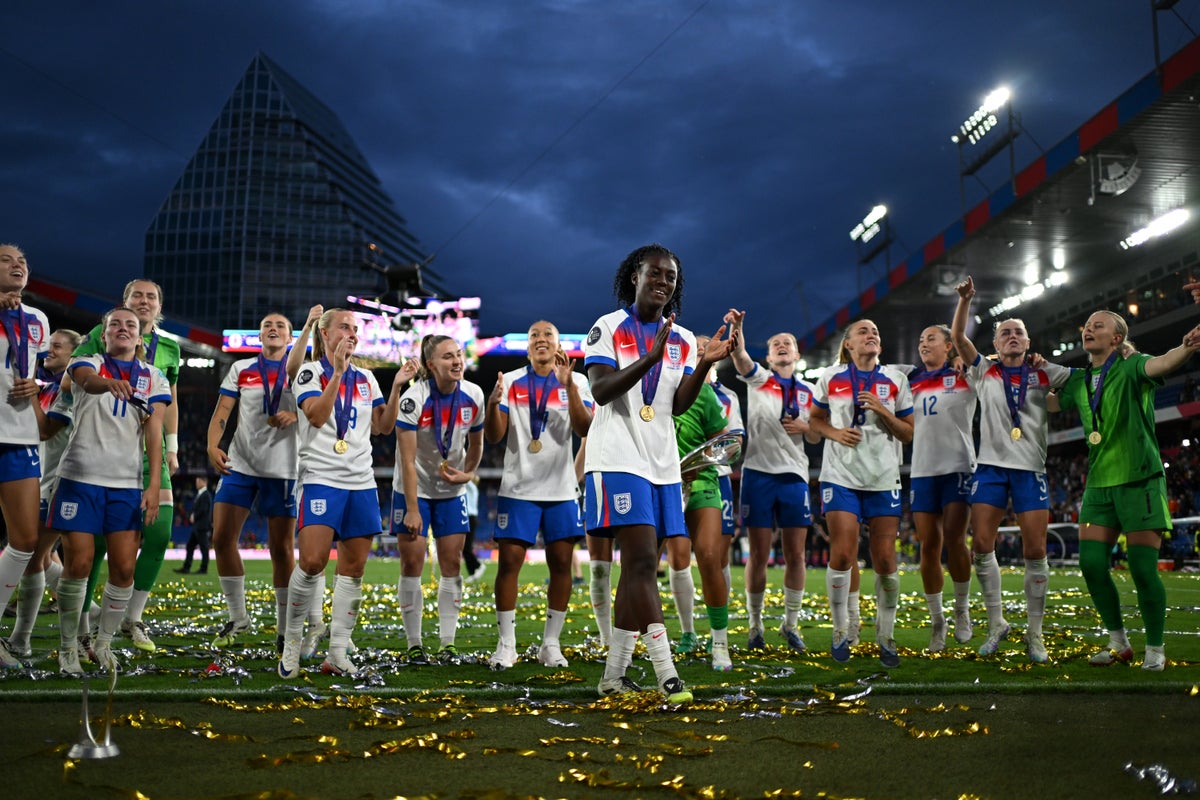In the most demanding moments of the Euro 2025 final, when the England players had to go to the depths of their will, they also felt something different. They didn’t endure the same tension as in previous games, or even the same doubt.
It was a common sentiment, from substitute Niamh Charles to Sarina Wiegman. Charles insisted there wasn’t a single moment when she thought England would lose to Spain. Wiegman, even more strikingly, admitted that marked a change from the quarter-final and semi-final.
“To be honest, I didn’t have that. I had a couple of times in the Sweden game and the Italy game and I thought: ‘We might be going home tomorrow.’” They of course went home on Monday anyway, but with the trophy itself.
“Never in doubt,” was the line used in jest after every win, but could be said now with real meaning. And while the words “spirit”, “resolve”, and “team culture” have been repeated a lot in the last two weeks, they also have a deeper consequence.
This England developed that final belief out of the three weeks that had gone before, as well as Euro 2022, and even the dogged run to the 2023 World Cup final. It is now 2-1 in major tournaments to England in what looks like a series against Spain, and 2-2-2 in overall results in Wiegman’s time. There is clearly no inferiority complex there, despite Spain’s vaunted ideology and the argument that England luckily got away with it in the final.
This England, put bluntly, can always fall back on the truth: they are winners. Repeat winners. They’re the only English side in history, outside the current men’s under-21s, who can stand on their results alone. They can just point to their medals.

It shouldn’t be overlooked just how much of a historical deviation this represents for the national game, especially with how often the legacy of the men is inevitably transposed onto the women. The men have all sorts of emotional and cultural baggage, which seems to most brutally reveal itself in matches similar to the Euro 2025 final. You only have to think of Argentina 1998, Portugal 2004, right up to their own Euro 2024 final against Spain.
England, for multiple reasons, found a way to fall short. Wiegman’s found a way to win. That historical doubt is absent, with every consequence of that – like this Euro 2025 final – only further bolstering their confidence.
Even better, they did it in a way that the English football public has historically appreciated: backs to the wall, grit, “proper England”. After more than a century, the country finally has that kind of football win.
It has an even more important legacy right now, because the women’s game had been enduring doubt in a different way.
One report by the Women’s Sports Trust before Euro 2025 revealed that broadcast audiences for the Women’s Super League had fallen by 35 per cent, with the competition set to undergo an overhaul. Momentum from the cultural moment that Euro 2022 represented had stalled.


Separate to that, concern has grown that the talent pool is nowhere near as strong for the next cycle or two. There could be a gap after this group.
It should be stressed that Uefa figures insist England are going to enjoy a talent explosion in 10-15 years – perhaps for the grand ambition of the 2035 World Cup – in the exact same way the men did from 2018. The Football Association’s investment since 2016 has been that extensive, so they genuinely deserve success for that.
Not every wealthy country treats the women’s game like that. Italy, England’s semi-final opponents, only turned professional three years ago.
Spain’s ultimate final defeat still has links to the old regime, too, The tactical acumen of coach Montse Tome has been questioned in less intense ways than Jorge Vilda’s. She was his assistant and only got the job when Vilda was sacked, with Tome having notoriously applauded Luis Rubiales’s announcement that he was not resigning in August 2023. The world champions still soared to supreme levels, elevating this competition. From her own perspective as a coach, Wiegman felt the quality of the tournament “went up again”, with “the intensity of the games through the roof”. “We’ve seen it in the games but also the data we have.”

That’s maybe inevitable given the “chaotic, ridiculous” nature of England’s matches, to quote Wiegman, but didn’t quite feel the case from outside. While the 2023 World Cup has a more pronounced concentration of quality, from a larger field, Euro 2025 looked more staggered. There were only five truly top teams. The Dutch were held up as challengers but were dismal.
Again, Euro 2025 itself may aid this. Switzerland, a country with 16 percent of England’s population, saw a considerable increase in attendance from Euro 2022. The hosts really took to this. The 657,291 who attended games marked a new record for the tournament, despite the conscious choice of smaller stadiums to ensure full crowds. The final venue, Basel’s St Jakob-Park, was the biggest ground, with a crowd of 34,203 for Chloe Kelly’s fateful last kick. It could have attracted over 70,000. England probably could have got at least 50,000 for any game.
Such figures will get federations like Switzerland and Italy moving. As to that staggered quality, that is just the ebb and flow of international football. Italia ‘90 was one of the lowest-quality men’s World Cups but has one of the strongest legacies due to its storylines.
Euro 2025 had this, as well as many absorbing games. There were certainly many more ‘moments’ than Fifa’s Club World Cup this summer.
England’s semi-final was duly ITV’s most watched programme so far this year, at 10.2m, with the final then BBC’s most watched at 12.2m. This truly is event sport, at least in the knockouts.

The question will now be about translating it to club games, in the way Arsenal have done by using the Emirates, but it is pointless to compare to the men. The men’s game has been described by historian Tom Holland as “the single most popular activity that’s ever been known by humanity”. Literally nothing can compete with it.
More likely is that women’s football becomes like rugby union, where big fixtures are huge events, sustained by more modest structures. More important should be participation, and one of the FA’s admirable goals is to “have the same number of girls and boys playing football”.
Victory powers this. The social impact of the players is perpetuated, their inspiration for young girls increased. Uefa figures themselves show that, while females only formed 16 per cent of the crowd at Euro 2024, they formed 50 per cent here.
There might be deeper questions about the Uefa leadership’s commitment, given president Aleksander Ceferin only went to two games: the first and last. Sources believe that some figures within the federation would gladly sign a cheque for there to be a separate women’s federation.
Something of its own is being built, though, as England are showing. There was even that extra social impact. England rallied around Jess Carter at a difficult moment given the racist abuse she received, and she herself chose to go for it in the final. She was superb, dealing with everything Spain threw at her.
Everything came together for England. Wiegman believes it can lift the wider game, and she knows a thing or two about that.




